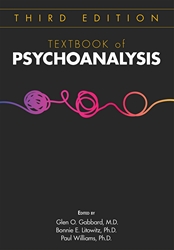Treatment Planning for Psychotherapists, Third Edition
A Practical Guide to Better Outcomes
View Pricing
Description
Previous editions of Dr. Richard B. Makover's popular handbook Treatment Planning for Psychotherapists shed light on this all-too-often neglected element of psychotherapy while squarely establishing themselves as the go-to references on the topic. Drawing on the author's years of experience, and with engaging and memorable clinical examples, the book presents a top-down, outcome-based approach to treatment planning that emphasizes the importance of the initial interview and assessment to the planning process, while providing practical advice for enhancing patient collaboration and reducing drop-out rates.
This revised edition of the guide has been updated to reflect important changes in mental health delivery systems and funding relevant to treatment providers, as well as the challenges and opportunities posed by the digital revolution. It is also more readable than ever: bullet points and chapter-end summaries distill points of emphasis, helping readers take in and reference information easily and effectively.
This third edition also features:
- An amplified chapter on assessment that explains how this crucial step should inform case formulation and, as a result, treatment planning.
- An expanded chapter on the challenges of treating patients struggling with cognitive impairment, addiction and psychoses, among other issues, ensuring that readers are equipped to handle a wide range of scenarios.
- A new, simplified approach to the often overlooked but crucial step of formulation.
- Suggested readings that will provide therapists with a comprehensive view of psychotherapy in general and treatment planning in particular.
The framework and methods offered in this edition of Treatment Planning for Psychotherapists make it an invaluable resource for clinical psychiatrists and psychologists, psychiatric nurse practitioners, psychiatric residents, clinical social workers—in short, anyone engaged in the challenging but necessary work of helping patients address and overcome their dysfunction.
Contents
- Preface
- About the Author
- PART 1
- Introduction
- Chapter 1. Overview
- Chapter 2. The Importance of Treatment Planning
- Chapter 3. Treatment Selection
- PART 2: Components
- Chapter 4. The Aim
- Chapter 5. Goals
- Chapter 6. Strategies
- Chapter 7. Tactics
- PART 3: Construction
- Chapter 8. Assessment
- Chapter 9. Formulation
- Chapter 10. The Plan
- Chapter 11. The Treatment Contract
- PART 4: Practice
- Chapter 12. Putting It All Together
- Chapter 13. Working the Plan
- Chapter 14. The Structural Impasse
- Chapter 15. Challenges
- PART 5: Education
- Chapter 16. New Learning
- Chapter 17. Suggested Readings
- Index
About the Authors
Richard B. Makover, M.D., is Lecturer in Psychiatry in the Department of Psychiatry at Yale School of Medicine in New Haven, Connecticut.
Related Products
Carousel Control - items will scroll by tabbing through them, otherwise arrows can be used to scroll one item at a time








